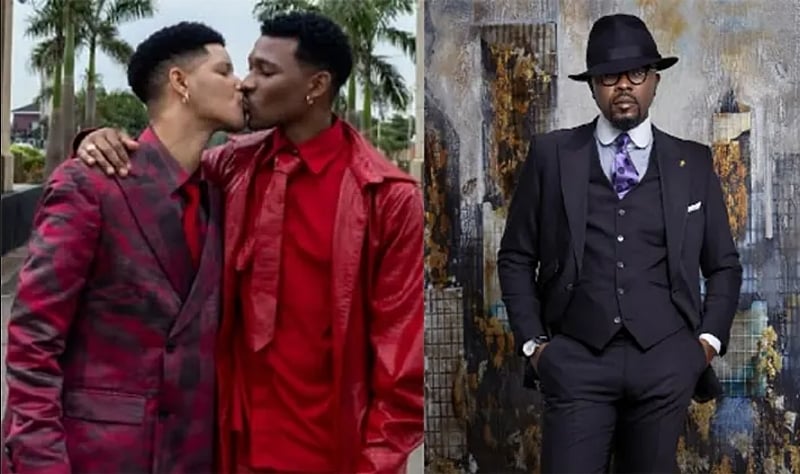The controversy surrounding KOD’s now-deleted Facebook post encapsulates the ongoing tension between individual expression, societal norms, and the symbolic weight of historical landmarks. The post, featuring an image of two South African men kissing beneath Ghana’s Independence Arch, ignited a firestorm of criticism, raising questions about freedom of expression, homophobia, privacy, and the sanctity of national symbols. KOD’s subsequent silence, following the post’s deletion, further fueled the debate, leaving many to interpret his actions and the broader implications of the incident.
KOD, a prominent figure in Ghana as the Director of Diaspora Affairs at the Presidency, holds a position that carries a significant degree of influence. His decision to share the image, coupled with his seemingly disapproving caption, quickly transformed a personal expression of discomfort into what many perceived as a public condemnation of the couple and, by extension, the LGBTQ+ community. The caption, “Who are they? Do your thing, but not beneath our Independence Monument,” seemed to suggest that the couple’s public display of affection was not only inappropriate but also a desecration of a national symbol. This framing immediately tapped into pre-existing societal anxieties surrounding LGBTQ+ rights and visibility in Ghana.
The Independence Arch, the backdrop of this controversy, carries immense historical and cultural significance for Ghanaians. As a monument commemorating the nation’s liberation from British colonial rule, it represents freedom, unity, and the sacrifices made for national sovereignty. It is a site imbued with collective memory and national pride, often used for state ceremonies and celebrations of national importance. Therefore, the choice of this location for the couple’s photoshoot added another layer of complexity to the ensuing debate. KOD’s framing of the photo, with its emphasis on the location, suggested that the couple’s actions disrespected the sanctity of the arch and, by association, the values it represents.
The criticism leveled against KOD was multifaceted. Many accused him of exploiting his platform to promote homophobic sentiment, arguing that his post served to incite negativity and potential harm against the couple. By questioning their identity and implicitly condemning their actions, KOD was seen as contributing to a climate of intolerance and discrimination towards LGBTQ+ individuals in Ghana. Others highlighted the potential threat to the couple’s safety and privacy that the post represented. By sharing their image without consent and exposing them to public scrutiny, KOD was accused of jeopardizing their well-being. In a country where LGBTQ+ rights are not legally protected and societal acceptance is limited, such public exposure could have significant repercussions.
The controversy also brought into sharp focus the ongoing debate about the boundaries of freedom of expression. While KOD arguably had the right to express his personal views, his position of influence and the potentially harmful consequences of his post raised questions about responsible online behavior and the ethical obligations of public figures. Did his right to express disapproval outweigh the potential harm inflicted upon the couple and the broader LGBTQ+ community? This question became central to the discussions that followed, highlighting the complexities of navigating free speech in the digital age.
KOD’s decision to delete the post without an apology or further explanation did little to quell the controversy. His silence was interpreted by some as a tacit admission of wrongdoing, while others viewed it as a missed opportunity to engage in meaningful dialogue and address the concerns raised by his actions. The absence of a public statement left a vacuum that was quickly filled with speculation and further criticism, highlighting the importance of transparent communication and accountability, especially for individuals in positions of public trust. The incident underscores the power of social media to amplify societal tensions and the responsibility that comes with wielding such influence in the digital sphere. It also served as a stark reminder of the ongoing struggle for LGBTQ+ rights and visibility in Ghana and the challenges in navigating complex social and political landscapes.














